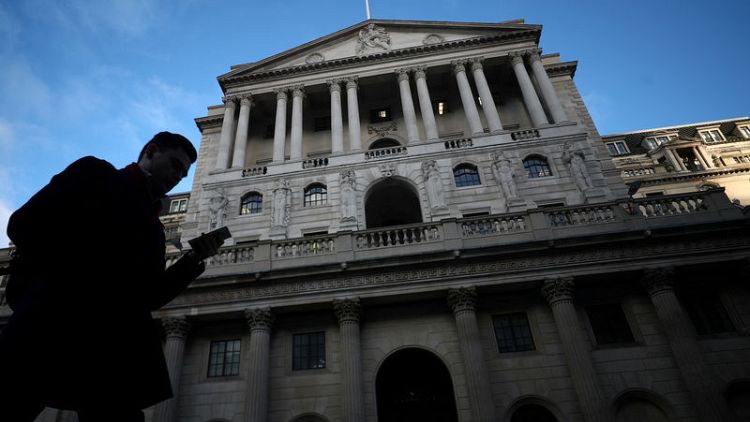By David Milliken and William Schomberg
LONDON, (Reuters) - The Bank of England said Brexit uncertainty was causing slack to re-emerge in Britain's economy and damaging productivity, and a failure to reach a transition deal by Oct. 31 could lead to further weakness.
The nine members of the BoE's Monetary Policy Committee all voted to keep rates on hold at 0.75% in September's policy decision, and reiterated a warning that leaving the European Union without a deal would slow growth and raise prices.
However, they noted for the first time in more detail the damage that a delay in leaving the EU would also do, after parliament voted to require Prime Minister Boris Johnson to postpone Brexit if he cannot reach a deal with Brussels soon.
"Political events could lead to a further period of entrenched uncertainty," the BoE said.
"The longer those uncertainties persisted, particularly in an environment of weaker global growth, the more likely it was that demand growth would remain below potential, increasing excess supply."
Inflation pressures would be more muted in this scenario too, it added.
If Britain does manage a smooth departure from the EU, the BoE said it would return to its long-term goal of raising British interest rates in a limited and gradual way, assuming global growth recovers somewhat.
The BoE's stance contrasted with the European Central Bank - which announced a programme of indefinite bond purchases last week - and that of the United States Federal Reserve, which cut its key interest rate by 0.25 percentage points on Wednesday.
If Britain leaves without a deal, rates might need to move up or down, depending on the inflationary shock of any slump in sterling, the BoE said, though Governor Mark Carney has said he personally believes a rate cut is more likely to be needed.
The central bank's staff cut their forecast for economic growth in the third quarter of 2019 to 0.2% from 0.3%, and the BoE projected that inflation would stay below its 2% target for the remainder of the year, largely due to an energy price cap.



